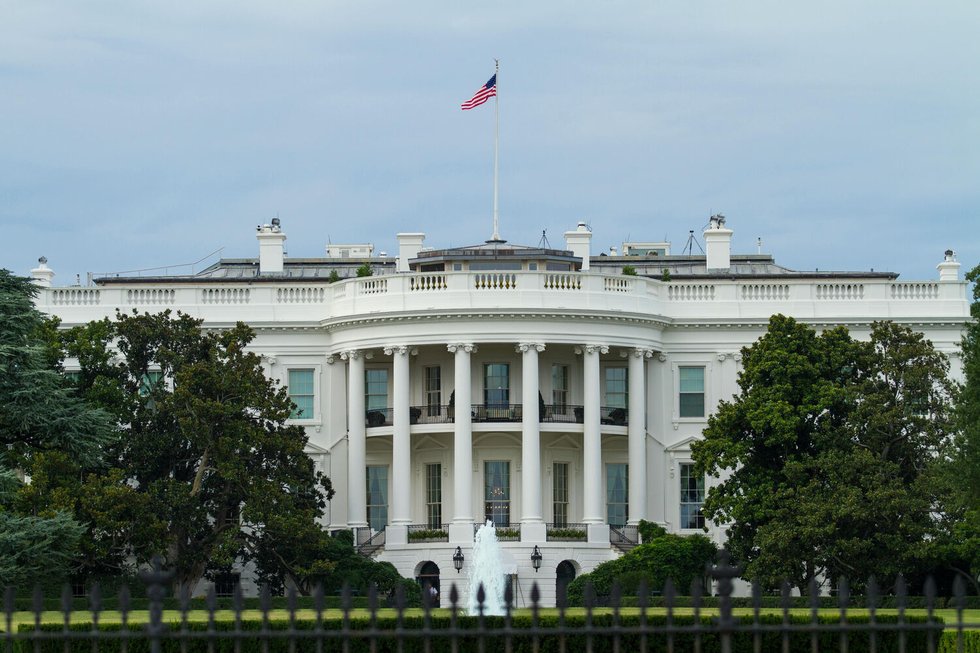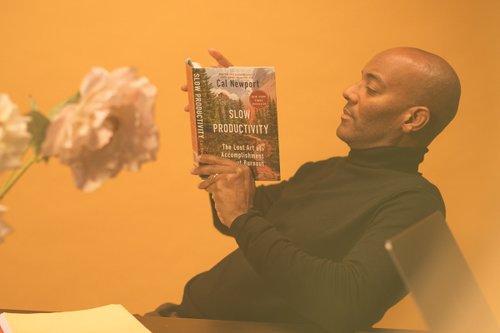Now hiring: President of the United States
Oct 30, 2024
4 mins

JB
Writer, translator and journalist
A competitive salary of $400,000 a year. A spacious office overlooking a wonderful rose garden. A private residence at the heart of Washington DC. A secluded country retreat in Catoctin Mountain Park for spending the holidays. And a private Boeing 747 for both domestic and international travel.
Sounds too good to be true, right? Just wait until you read the job description.
The perks that come with being the President of the United States of America are well-known, but aside from the constitutional requirements of being at least 35 years old, a natural-born citizen, and a resident for 14 years, what skills, personality, and experience would recruiters be looking for if they had to hire a president?
The presidential profile
“You have to have a bit of narcissism floating around your veins,” says Shannon O’Brien, an expert on the American presidency and an associate professor of instruction at the University of Texas at Austin. “You need a real belief in yourself that you can change things and that you know how to do it.”
Likewise, the president has to be comfortable with having the spotlight of the world on them and being disliked. “No matter what you do in this job, somebody’s going to say you’ve done it wrong. From the food served at a banquet, to peace treaties and cabinet picks. You’re going to be wrong!” says O’Brien. Therefore, a perfect blend of narcissism, resilience, and conviction is definitely a strength for any presidential candidate.
However, for Stanley Renshon, a professor of political science at CUNY and a psychoanalyst who studies presidential psychology, authenticity and integrity are the key for success. “Presidents run into a lot of trouble presenting themselves as they would prefer to be seen and not as who they are,” he says. To this end, presidents need to be honest with the public about who they really are and what their ambitions are.
“Ronald Reagan, for example, governed as he ran, we knew who he was, and public confidence in the presidency went up.”
Renshon says that without authenticity and integrity, the public becomes disappointed with a presidency, saying, “The worst thing you can do as president is have a trail of broken promises.”
The soft skills
There are many soft skills that recruiters would be looking for in a president, namely mental flexibility and having the ability to compartmentalize issues.
“The president is in charge of everything from domestic policy, foreign negotiations with China, steel imports, and protests,” says O’Brien. “As president, you need to be able to quickly slide between humanitarian and diplomatic issues while keeping constitutional framework in your head.” Quick thinking—both mentally and verbally—is therefore imperative.
Likewise, presidents need to be good at reading people and be willing to listen—and not just to the people cheering them on. O’Brien cites Eisenhower as a good example of this, explaining that he was good at understanding people and putting the best people in positions. “He trusted them to make decisions with accountability always falling on him,” she says.
In this respect, presidents need to be great delegators and not micromanage. Therefore, a president’s pick for chief of staff is crucial. “If a president’s constantly late, having issues or not prepared for meetings, it’s usually a failure at the chief of staff level.”
To highlight this, O’Brien cites how Jimmy Carter chose not to have a chief of staff and ended up dealing with everything from magazine subscriptions at the White House to diplomacy. “The reality is that there’s so much information, a good chief of staff organizes it all and makes a president look like a genius,” concludes O’Brien.
Ultimately, though, a president having good and independent judgment is vital. “You don’t want a president who simply agrees to the last word they heard in a Security Council meeting. You want a president who can take it all in and arrive at their own conclusions,” says Renshon. In this sense, a successful presidency can hinge on a president “seeing things for what they are rather than what they’d like them to be.”
The hard skills
As for hard skills, O’Brien believes that presidents should ideally have an understanding of the US government and its three-branch structure. They need to grasp that in the US there is a president, a chief justice, and a speaker of the house. Likewise, presidents need to understand constitutional law at least at the very basic level.
O’Brien explains that presidents also need to know how to sell ideas, make good speeches, and make complicated things seem straightforward. She adds that in this sense, charisma can really carry a president.
Renshon adds that having empathy can also be really helpful when communicating. “Bill Clinton was famous for feeling people’s pain. He could do empathy on a dime. But the question is, when presidents show empathy, is it authentic?”
Mental health and physical fitness
Being president also takes its toll both physically and psychologically.
“The presidency is very isolating,” says O’Brien. “You can’t just walk out on the lawn or have a drink with your friend. You’re secured all the time. It’s like living in a fishbowl.”
O’Brien says that it can also be tough for presidents to work out who is an actual friend and who is there for personal gain. A president can also be the victim of backstabbing by once trusted allies. “You have to be psychologically tough to do this job,” warns O’Brien.
Likewise, the presidency can also be physically demanding due to “insane” travel schedules and sleep deprivation. “Presidents have to be able to power nap and sleep when they can.”
However, O’Brien stresses that physical fitness is less of an issue than mental resilience. She highlights this point by reminding us that Roosevelt was a wheelchair user. “Able-bodiedness certainly shouldn’t be a factor in being president,” she stresses.
Personality hire or experience?
So, should the president be a personality hire or should their skills take precedence?
O’Brien believes that both personality and skills are important. But, she admits that although people would prefer a president to be elected on their experience and qualifications, that it’s more often than not because of their personality.
Arguably, the presidential primaries encourage this. This is because, as O’Brien points out, during the primaries, political parties are looking to attract hardcore party voters with candidates who will fundraise and win states.
Regardless of who is ultimately elected as president and on what merit, O’Brien believes that a president should always be humble. “I always tell my students that the president is exactly the same as us—except he’s got a really cool job. Presidents should be humbled by the power they wield and respectful to the public that put them there.”
Likewise, they need to respect government. “This government has been here since the 18th century. It’s going to be here long after they’re dead.” However, as with any organizational leader, the impact they make while in office will be largely up to them.
Photo: Ramaz Bluashvili for Welcome to the Jungle
Follow Welcome to the Jungle on Facebook, LinkedIn, and Instagram and subscribe to our newsletter to get our latest articles every week!

More inspiration: Future of Work

The Bear: When professional passion turns toxic
Carmy's workplace trauma isn't unique...
Dec 31, 2024

The youth have spoken: South Korea’s push for a four-day workweek
Is this the end of Korean hustle culture?
Dec 26, 2024

Cal Newport's Slow Productivity: Redefining success in a hustle culture
Is slowing down the key to achieving more?
Dec 19, 2024

Wellbeing washing: Are workplace mental health apps doing more harm than good?
Workers are struggling with mental health. Are employers approaching it the right way?
Dec 19, 2024

Dark side of DINKs: Working as a childfree adult
Having children comes with challenges. So does choosing not to.
Dec 11, 2024
Inside the jungle: The HR newsletter
Studies, events, expert analysis, and solutions—every two weeks in your inbox

